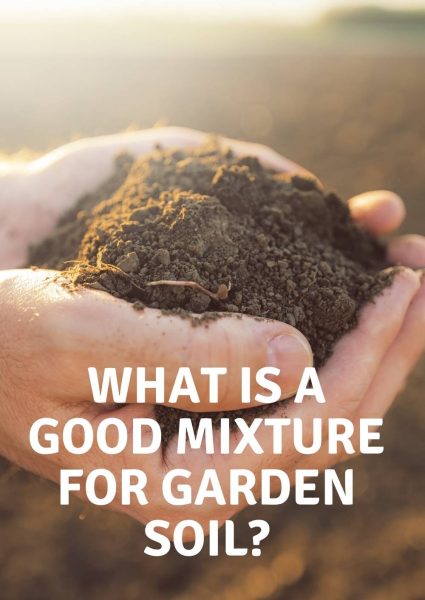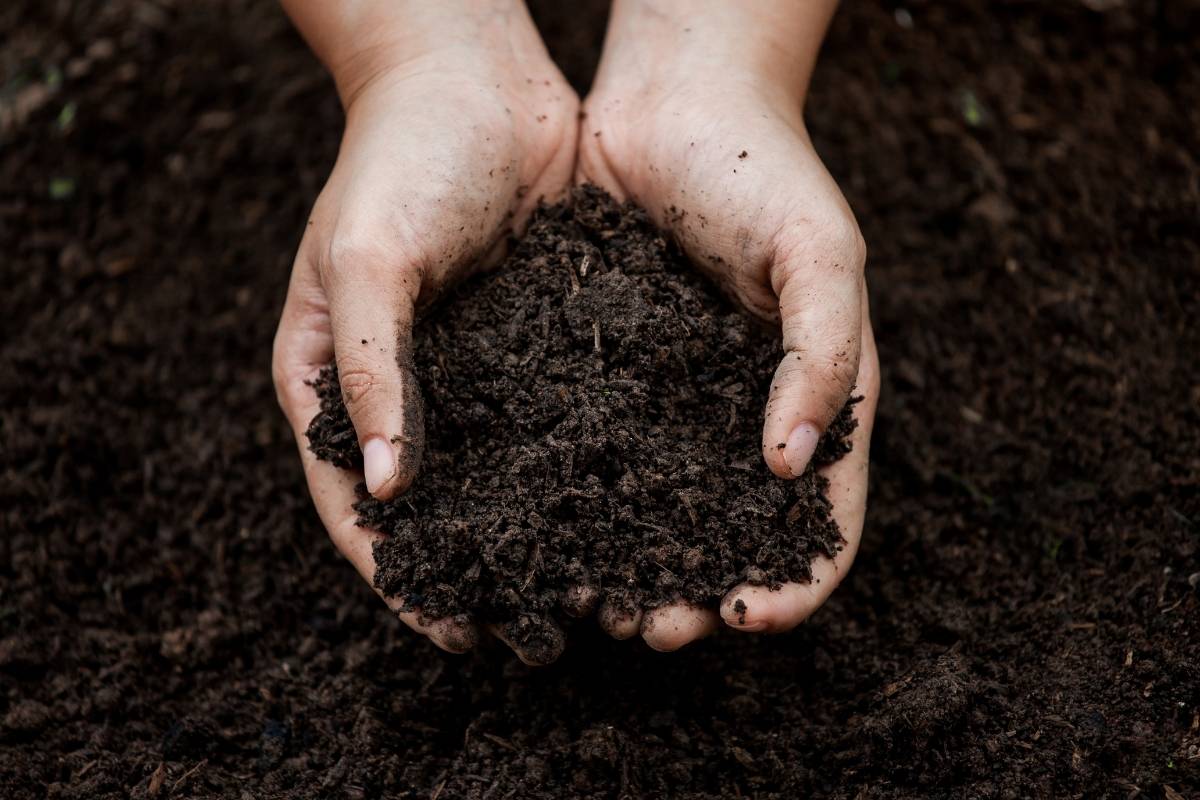Having the right garden soil can make a real difference to the quality and health of the plants that you grow. It can also help you to grow plants that you otherwise may have never considered.
For years I have been experimenting with different soil mixtures, always looking for an ideal mixture that will grow the most productive garden vegetables, flowers and other plants.
The best soil really depends on the types of plants that you want to grow, as often, different plants have different needs. Overall for a good all-round soil you should aim for a soil that is 60% top soil, 30% compost and 10% potting soil. This is a good combination that will work well for most plants.

When preparing your soil for planting you should aim to have the soil nice and light, containing plenty of oxygen.
If it is too heavy or compacted this can lead to a buildup of suffocation in the soil which will inhibit both root growth and water/nutrient intake.
If you are starting from scratch then it’s important to make sure the soil has a good base to build on.
The best way to do this is by adding plenty of organic matter such as manure, peat, leaf mold or other suitable organic material.
This will create a good living space for the beneficial microbes in the soil and give them something productive to feed on and help transform your garden soil into a fertile growing environment.
Whatever you do, it is important to avoid any chemical based fertilizers or soil treatments as these can be harmful to your plants and will not allow for a healthy living environment.
Soil that has been treated in this way may look green and active at first but soon after planting the soil will revert back to being a lifeless desert devoid of any real fertility or beneficial microbes.
[amazon box=”B07DF9LN96″ template=”horizontal”]
Can you make your own garden soil mix?
It is possible to make your own soil mixture but it all really depends on the size of your plot and how much soil you need.
For raised beds and pots you should be easily able to produce a good soil in situ from bags of compost, potting soil and some of your existing garden soil.
If you have a large plot then clearly this will need more time and effort.
A good approach is to take on a small area at a time, which will make the job much more manageable.
You may have to buy in bulk and have the various composts and soils delivered by truck or trailer, so think about how you will move and mix this at your home.
Is it possible to buy good quality soil to add to an existing garden?
If your soil is heavy or in poor condition then another option is to simply order some good topsoil from a supplier and to add this to your garden.
This is something that I have done many times when I have been faced with difficult to work gardens.
You will often need to purchase several tons of soil and, if possible, you should try to check the quality before placing your final order.
Your local garden center would be a good place to contact if you are looking to buy in bulk as they will be familiar with local suppliers and might even supply it themselves.
Final Note
Your soil is the most important element in your garden.
The quality of your soil and it’s suitability for plants will be the biggest influence as to whether you have plants that thrive or plants that struggle.
Always take time to check your soil and, if necessary improve it’s quality to give your plants the best possible environment for growth.
Be sure to add plenty of organic material, compost and potting soil when planting out your new garden so that the beneficial microbes in the soil are given a chance to build up their numbers and create a fertile foothold for your plants.
Your plants will thank you for it.




